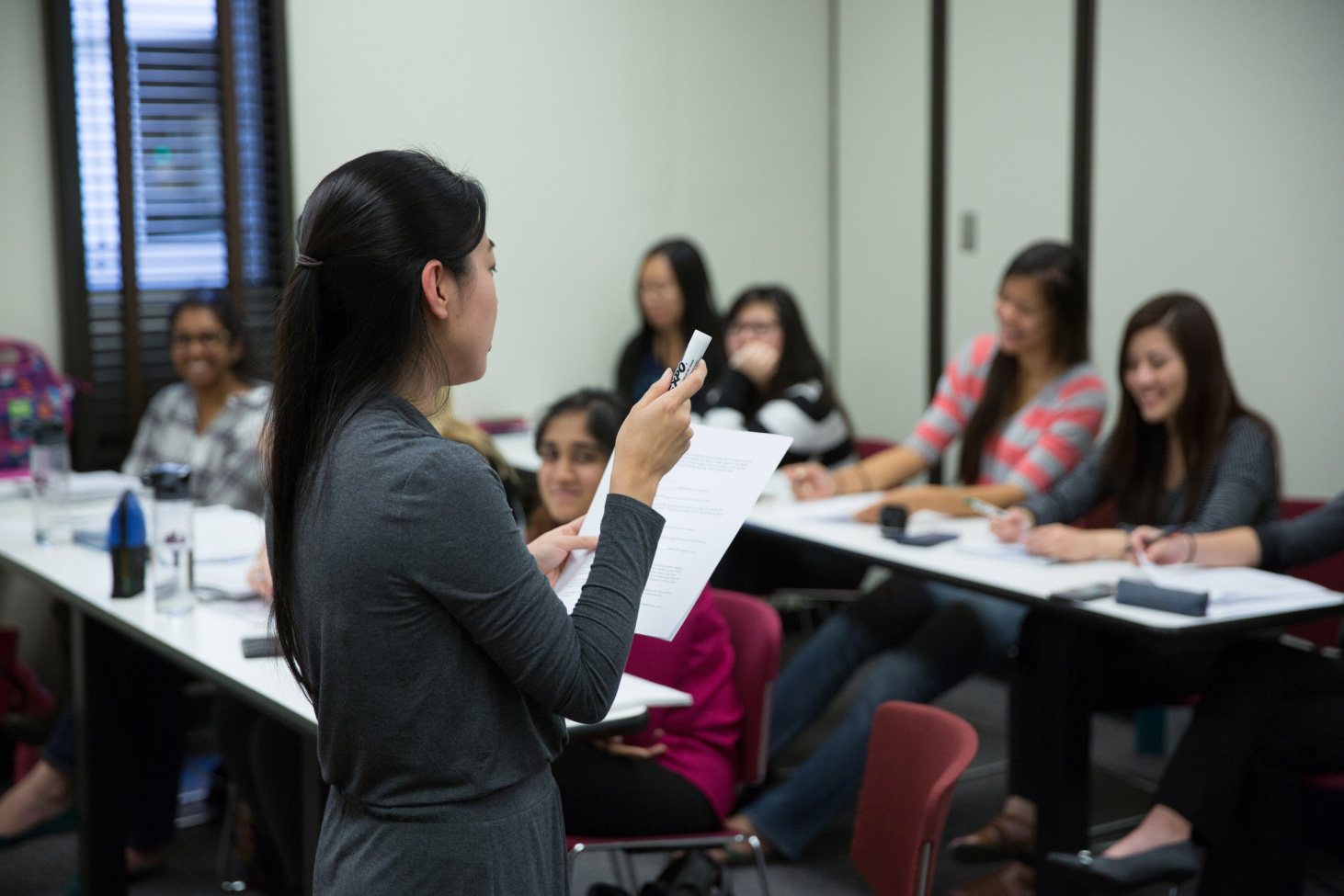Research in the area of vision science is a growing need, with new treatments for dry eye, diabetic eye disease, sports injuries, low vision and other conditions making it possible for people to retain and enhance their vision.
To prepare more optometrists to become researchers or teachers, Ketchum University began a Master of Science in Vision Science (MS) degree program in 2010.
“This program provides students with more formalized training in science and statistics so they can be prepared to conduct research and add to the knowledge of vision science and care,” says University Provost Dr. Morris Berman, OD, MS.
The MS program takes two full years of study, which can be taken concurrently with the OD program, or on their own. Practicing optometrists may also pursue the MS part time.
“Every student who graduates from this program has an expanded knowledge that helps them personally,” adds Dr. Berman. “It has created career opportunities for them that may not have been available without this degree.”
The MS is structured as a research-based graduate degree that prepares recipients to add to clinical knowledge about a wide variety of diseases and conditions that affect the eye. MS researchers may publish their findings in peer-reviewed journals, and are also qualified to share their knowledge as an educator.
Interest in the MS program at MBKU is strong, with enrollment now at its capacity of about 12 students, says Dr. Berman. “Right now we have the strongest cohort in our history.”
Whereas the first few classes produced just a single graduate, in 2016 a total of five students expect to receive their Master of Science in Vision Science : Amanda Beaudry, Roya Garakani, Ashley Greenawalt, Apoorva Karsolia and Tam D. “Tammy” Nguyen.
“The Master of Science in Vision Science program was started at the college to prepare optometrists to become teachers and/or researchers. There is a great need for new knowledge in the vision sciences and teaching and research opportunities are numerous in a spectrum of academic, industrial and professional settings,” says University President Kevin L. Alexander, OD, PhD. “This year’s commencement ceremony will be particularly exciting as we honor five new graduates of this program.”
One of the reasons the MS program was established was to enable the university to “grow its own” educators. In fact, the very first graduate, in 2013, has now joined the MBKU faculty.
Rachelle J. Lin, OD, MS, was pursuing her optometry degree when she learned about the MS program, and enrolled concurrently. “I realized that if I could do both the clinical practice as well as teach, I would have the best of both worlds.” She now shares her passion for optometry and vision research with students in the MBKU clinics and laboratory.
“Research is really important in optometry,” says Dr. Lin, “because it shapes the future of what the profession will look like. How we practice really should be based on scientific knowledge and not just guesswork of what we think will work best for patients.”
Dr. Lin says she has seen tremendous change at the university in just the few years since she graduated. “When I graduated, there was really only SCCO,” the Southern California College of Optometry that houses the vision programs at MBKU. “Now just a few years later we have PA students who have completed their first year of PA school, and we already have on board many of the pharmacy staff and faculty who are planning out how best to incorporate their specialty into the university curriculum.”
“By adding the PA and pharmacy programs to the highly regarded optometry program, Marshall B. Ketchum University enjoys a level of interprofessional learning that did not really exist before,” says Dr. Berman. “At the end of the day, we trust this will produce more dedication to patients, whether they’re optometry patients or PA patients or pharmacy patients.”
Dr. Berman notes the considerable growth at the university since he joined the faculty in 1985 as dean of academic affairs for SCCO, the university's 111-year-old optometry program.
“The steps taken by the university through the efforts of the president and the board of trustees has changed the direction of the institution,” Dr. Berman says. “Change is exciting.”
The three disciplines of optometry, PA and pharmacy will eventually receive their clinical training together at the new Ketchum Health center scheduled to open in spring. Dr. Lin agrees that the expanding interprofessional model between health care providers is becoming an industry standard.
“It’s the future of health care, really,” she says. “It’s necessary for the best care of patients that we do interact and communicate and understand each other’s professions. The students at the new Ketchum Health are going to have that opportunity to learn in an environment that encourages them and shows them what the ideal practice is going to look like. With the new model for Ketchum Health, 2016 is going to be an exciting year.”

